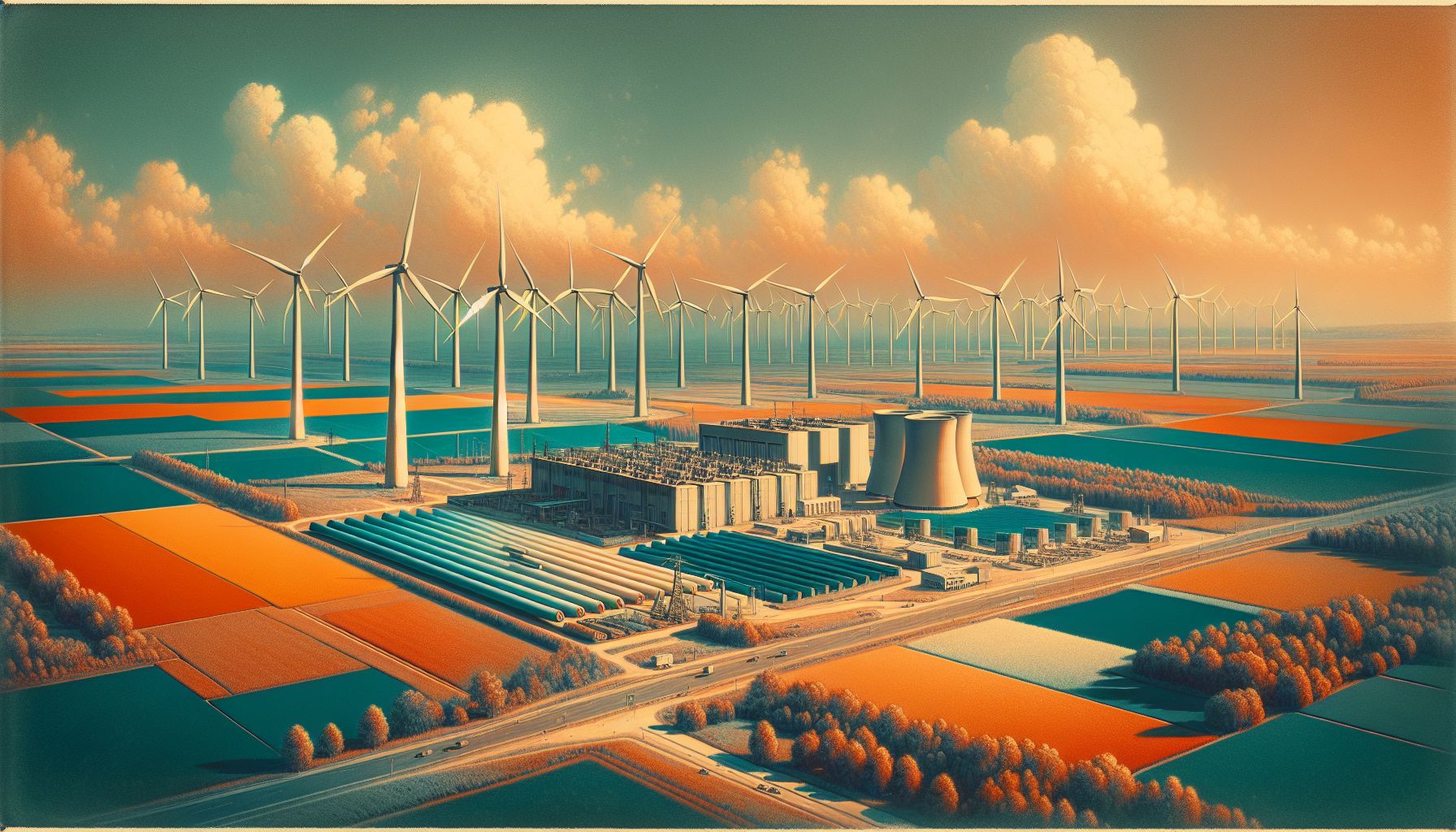windpark zeewolde plans development of new sustainable energy park

Windpark Zeewolde announces plans for a sustainable energy park, including megabattery storage and a waterstof factory, to boost renewable energy and reduce carbon emissions in the Netherlands.
Megabattery Storage: A Key Component
Windpark Zeewolde’s new sustainable energy park will feature two significant megabattery storage facilities. The first battery park, covering 2,000 square meters, will be located adjacent to the wind park’s transformer station. With a capacity of 65 megawatt-hours, this storage unit will be capable of meeting the average electricity consumption of approximately 12,000 households. Rolls-Royce Power Systems is tasked with realizing this project, which is set to commence construction in July 2024 and is expected to be operational by fall 2025. This initiative aims to alleviate grid congestion by storing excess energy generated during high wind conditions and supplying green electricity during calmer periods.
Second Battery Park and Hydrogen Factory
In addition to the first battery park, a second facility, BES Vogelweg Zeewolde, will be developed next to the transformer station. This project, covering 2,400 square meters, has already received the necessary permits, although specific timelines for its construction and operation are yet to be determined. Furthermore, the energy park will include a 15 megawatt hydrogen factory, planned on a 12,000 square meter site. The hydrogen facility, expected to start construction in 2026, will convert electricity from wind turbines into green hydrogen. This hydrogen will then be stored in high-pressure gas cylinders for distribution. This development marks a significant step towards a fossil-free agricultural sector in Zeewolde, as it will provide sustainable fuel for heavy trucks and machinery.
Community-Driven Project
The sustainable energy park at Windpark Zeewolde is backed by 200 local farmers, residents, and entrepreneurs, demonstrating a strong community commitment to renewable energy and sustainability. Sjoerd Sieburgh Sjoerdsma, director of Windpark Zeewolde, emphasized the importance of this initiative in preventing grid congestion and ensuring a consistent supply of green energy. According to Sjoerdsma, the hydrogen factory will not only support heavy-duty transport but also contribute to making the Zeewolde agricultural sector fossil-free by replacing diesel with green hydrogen for heavy tractors and construction equipment.
Broader Implications and Future Prospects
Windpark Zeewolde’s efforts align with broader global and European strategies for sustainable energy and the circular economy. As highlighted in recent events such as the World Circular Economy Forum 2024, there is a growing emphasis on transitioning to renewable energy sources to combat climate change and reduce carbon emissions. The development of large-scale battery storage and hydrogen production facilities represents a significant leap forward in this context. With the construction of the first battery park beginning in mid-2024 and the hydrogen factory expected to follow in 2026, these projects will play a crucial role in moving towards a sustainable and carbon-neutral future in the Netherlands.

